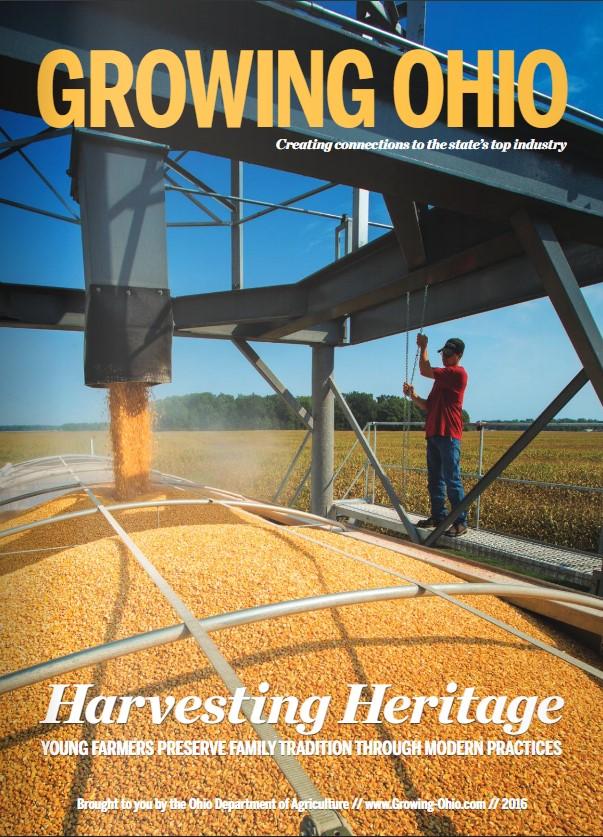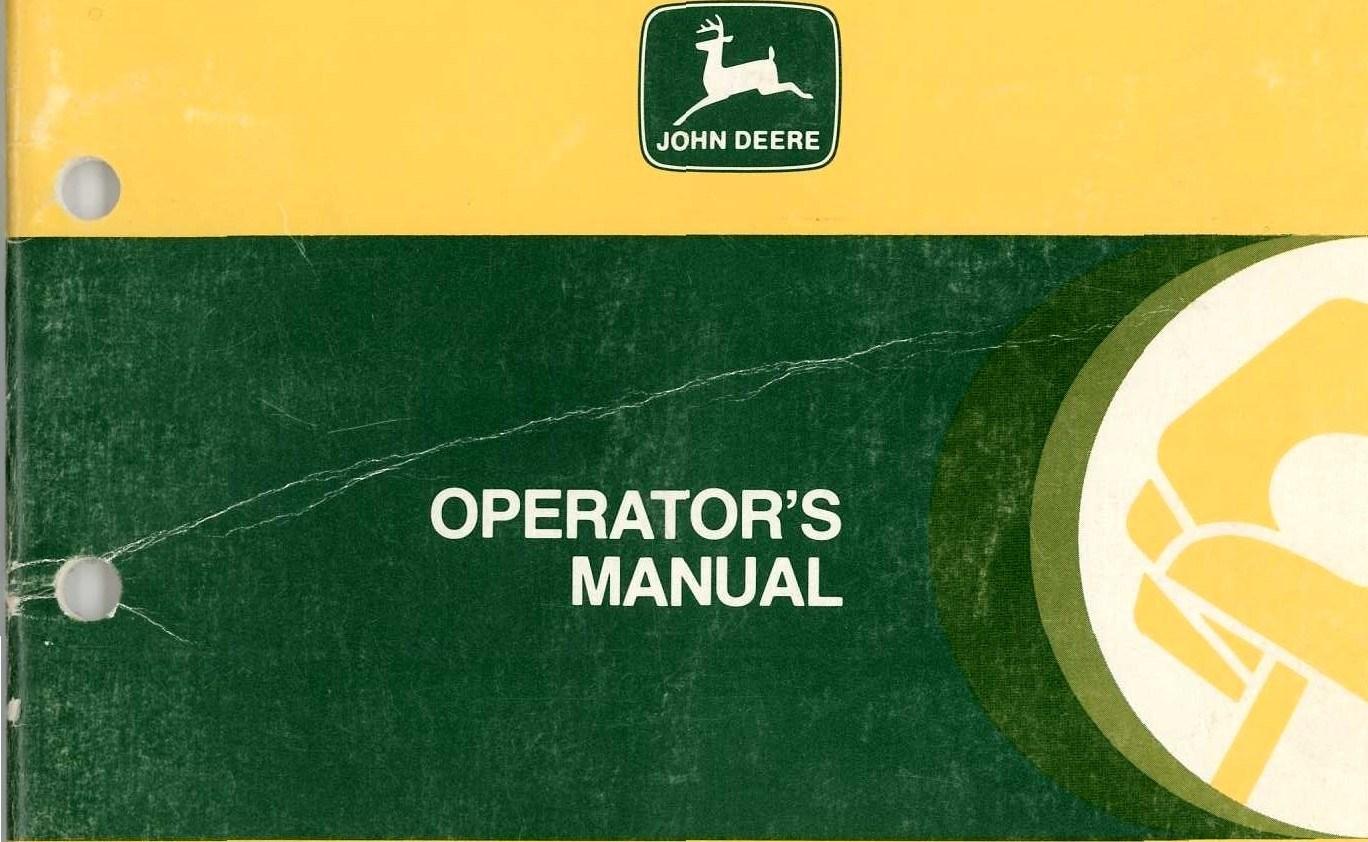
316, 318 and 420
Lawn and Garden Tractors
(Serial






(Serial




Thank you for purchasing a John Deere product.
Readthfa manual carefully to learn how to operate and service your machine correctly. Failure to do so could reeult in personal injury or equipment damage.
ThM manual should be conaldered a permanent part of your machine and should remain with the machine when you eell it.
Measurements in this manual are U.S. customary units and their metric equivalents.
Right-hand and left6and sides are determined by facing in the direction of forward travel.
Write ldenGflcaMon numbers in the Specifications section. Accurately record all the numbers to help in tracing the machine should it be stolen. Your dealer also needs these numbers when you order parts. If this manual is kept on the machine, also file the identification numbers in a sacure plaoe ofl the machine.
Warranty is provided as part of John Deere'e support program for customers who operate and maintain their equipment as described in this manual. The warranty is explained on the warranty certificate which you should have received from your dealer.
This warranty provides you the a9surance that John Deere will back its products where defects appear within the warmly period. In some circumetancas, John Deere also provides field improvements, often without charge to the customer, even if the product is out of warranty. Should the equipment be abused, or modified to change its performance beyond the original factory specifications, the warranty will become void and field Improvements may be denied. Setting fuel delivery above specifications or otherwise overpowering machines will result in such action.
The tlra manufacturer's warranty supplied with your machine may not apply outside the U.S.


All irifonnafion, illuetrafions and specifications in this manual are based on the latest product information available at the time of publicafion. The right is reserved to make changes at any time wilfiout nofiae.


This is the safety-alert symbol. When you see this symbol on your machine or in this manual, be alert to the potential for personal injury.
Follow recommended precautions and safe operating practices.

Carefully read this manual. Learn how to operate the machine and how to use the controls properly.
Do not let anyone operate this machine without proper instruction.
Unauthorized modifications to the machine may impair the function and/or safety and affect machine life.
A signal word DANGER, WARNING, or CAUTION is used with the safety-alert symbol. DANGER identifies the most serious hazards.
Safety signs with signal word DANGER or WARNING are typically near specific hazards.
General precautions are listed on CAUTION safety signs. CAUTION also calls attention to safety messages in this manual.
Only allow the operator on the machine. Keep riders ofl.
Riders on machine are subject to injury such as being struck by foreign objects and being thrown oft ot the machine. Riders also obstruct the operator's view resulting in the machine being operated in an unsafe manner.







Keep children and others away when you operate machine.
Stop the PTO.
Look behind tractor for children.
Do not let children operate tractor.
Never carry children. Do not let children ride on tractor, mower, or any attachment.
Do not drive where machine could slip or tip.
Stay alert for holes, rocks, and roots in the terrain, and other hidden hazards. Keep away from drop-ofls.
Slow down before you make a sharp turn.
Use care when pulling loads or using heavy equipment.
Use only approved drawbar hitch points.
Limit loads to those you can safely control.
Use counterweights or wheel weights when suggested in this operator's manual.
Reduce speed and exercise extreme caution on slopes and in sharp turns to prevent tipping or loss of control. Be especially cautious when changing direction on slopes.
Do not stop or start suddenly when going uphill or downhill.
If machine stops going up hill.
Stop the PTO.
Back down slowly.
To park tractor safely:
1. Move shift lever in "N” (Neutral) position.
2. Disengage PTO'S.
3. Lower equipment to the ground.
4. Engage park brake.
5. Stop the engine.
6. Remove key.
Before you leave the operator's seat, wait for engine and attachment parts to stop moving.









 A98;M4t274 V2T;;5AS -0 080987
A98;M41773 MZI;;5AS -81 0B0987
A98;M4t274 V2T;;5AS -0 080987
A98;M41773 MZI;;5AS -81 0B0987
Wear close fitting clothing and safety equipment appropriate to the job.
Prolonged exposure to loud noise can cause impairment or loss of hearing.
Wear a suitable hearing protective device such as earmuffs or earplugs to protect against objectionable or uncomfortable loud noises.
Handle fuel with care: it is highly flammable. Do not refuel the machine while smoking or when near open flame or sparks.
Always stop engine betore refueling machine. Fill fuel tank outdoors.
Prevent fires by keeping machine clean of accumulated trash, grease, and debris. Always clean up spilled fuel.
Be prepared if a fire starts.
Keep a firstaid kit and fire extinguisher handy.
Keep emergency numbers for doctors, ambulance service, hospital, and fire department near your telephone.












 AB6:T5206 053;WEAR z39487
AB6;TS202 053;FtRE1 z30»a7
AB6:T5206 053;WEAR z39487
AB6;TS202 053;FtRE1 z30»a7
Understand service procedure before doing work. Keep area clean and dry.
Never lubricate or service machine while it is moving. Keep hands, feet, and clothing from power-driven parts. Disengage all power and operate controls to relieve pressure. Lower equipment to the ground. Stop the engine. Remove the key. Allow machine to cool.
Securely support any machine elements that must be raised for service work.
Keep all parts in good condition and properly installed. Fix damage immediately. Replace worn or broken parts. Remove any buildup of grease, oil, or debris.
Disconnect battery ground cable (-) before making adjustments on electrical systems or welding on machine.





Failure to follow proper procedures when mounting a tire on a wheel or rim can produce an explosion which may result in serious injury or death. Do not attempt to mount a tire unless you have the proper equipment and experience to perform the job. Have it done by your John Deere dealer or a qualified tire repair service.
When sealing tire beads on rims, never exceed 35 psi (240 kPa) (2.4 bar) or maximum inflation pressures specified by tire manufacturers for mounting tires. Inflation beyond this maximum pressure may break the bead, or even the rim, with dangerous explosive force. If both beads are not seated when the maximum recommended pressure is reached, deflate, reposition tire, relubricate bead, and reinflate.
Detailed tire mounting instructions, including necessary safety precautions, are contained in John Deere Fundamentals of Service (FOS) Manual 55, Tires and Tracks, available through your John Deere dealer. Such information is also available from the Rubber Manufacturers Association and from tire manufacturers.
Ae6;Ts2TB os3;sERv 2I S287Danger signs identify the most serious hazards.
Keep safety signs in good condition.
Replace missing or damaged safety signs.
Signs are attached to machine near specific hazard areas.
Pedestal Safety Sign (420 Tractor Shown)
Caution signs call attention to safety messages in this manual.



•
•
A Outer Hydraulic Lever
Controls Front Left-Hand Hydraulic Outlets
B Center Hydraulic Lever
Controls Rockshaft
dinner Hydraulic Lever—
Controls Front Right-Hand Hydraulic Outlets

A Outer Hydraulic Lever Controls rockehaft and lett front hydraulic
Winner Hydraulic Lever—
Controls Front RightHand Hydraulic Outlets
A—Hydraulic Control Lever—
Controls Rockshaft and Front Hydraulic Outlets


A Throttle Lever
B Front Power Take•Off (PTO) Switch
C choke
n i 'ght Switch
E Key Switch F Park Lock Lever

 A Hydrostatic Control Lever
A Hydrostatic Control Lever

2-SPEED AXLE SHIFT LEVER 420 ONLY

DIFFERENTIAL LOCK 420 ONLY
 A Left TurnBrake Pedal
lRight Turn Brake Pedal
WBrake Strap
A Left TurnBrake Pedal
lRight Turn Brake Pedal
WBrake Strap


The control is under right-rear fender.

CAUTION: Start engfne only outdoors or In a well-ventilated place. Exhaust fumea are dangerous
NOTE: Engine will not atart unleas hydrostaticcontrol lever *5 fn N (neufial) am Pro match is off.
1. Move hydrostatic control lever to N (neutral) position.

2. Move front PTO switch andrear PTO switch (if equipped) to OFF position.

NOTE: When park brake ia locked, hydrostatic con/roIiever cannot be moved out of N (neutral) position.
3. For 316 Tractor, lock parkbrake:
a. Move park lock lever (A) to P position (bottom of slot).
b. Push brake pedal (B) all the way down. Pedal will stay down when park brake is properly locked.
For 318 and 420 Tractors lock park brake:
a. Move park lock lever (A) to P position (bottom of slot).
b. Connect brake pedals with brake strap (B).
c. Push brake pedals (C) all the way down. Pedals will stay down when park brake is locked.



4. Move throttle lever (A) to 1/4 position.
5. When engine is cold, pull choke knob all the way out.


6. Turn key to RUN position. Check indicator lights:
a. Oil pressure indicator (A) will be ON.
b. Battery discharge indicator (B) will be ON.
c. Front and rear PTO indicators (C and D) will be OFF.

IMPORTANT: If an indicator does not operate asshown on chart, IMMEDIATELY STOP THE ENGINE.Find and correct tha cauae.
Do not operate starter more than 10 seconds. If engine does not start, wait 2 minutes before you try again to avoid starter damage.
7. Turn key to START position. If engine does not start after four tries, see Electrical Problems in Trouble Shooting section.
8. As soon as engine starts, release key. The key will return to the RUN position.
1. After engine starts, gradually push choke knob in. You may have to leave choke knob halfway out until the engine warms.
2. Run the engine at half throttle (A) for 5 minutes without putting 1be tractor under a full load.
3. As engine warms, gradually push choke knob all the way in.
1. The engine is air-cooled and needs a large volume of air to keep it cool. Keep the air intake and belly screens clean. (See Cleaning Air Intake Screens in Service section.)
2. Avoid unnecessary engine i ng. Stop the engine, Instead of letting it idle for a long time.



